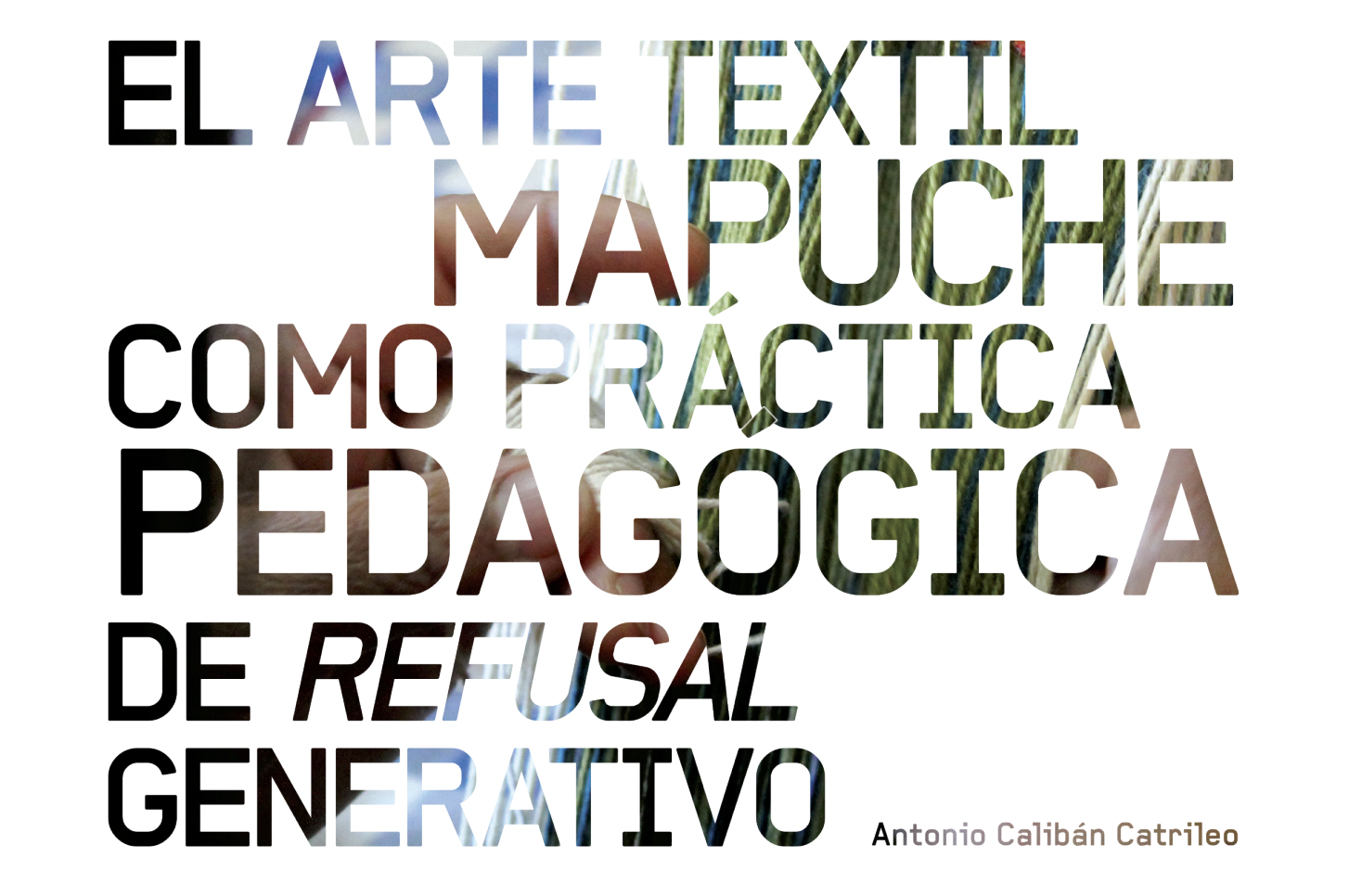El arte textil mapuche como práctica pedagógica de refusal generativo

Published 2023-12-15
Keywords
- refusal,
- land-based pedagogy,
- Mapuche weaving art,
- heteropatriarchal violence,
- intergenerational trauma
How to Cite
Copyright (c) 2023 Antonio Calibán Catrileo

This work is licensed under a Creative Commons Attribution-NonCommercial 4.0 International License.
Abstract
Through an ethnographic exploration based on the concept of ethnographic refusal (Audra Simpson 2014), I will reflect about a generative practice of land based pedagogy as a way to sensibilize about indigeneity and gender fluid experiences based on my practice sharing the ancestral knowledge about the Mapuche textile art (witral) that I have recovered from elders and Mapuche epistemology as a way to reactivate the erased memory of my epupillan (two-spirited) ancestors. The artistic practice of weaving would be a possibility to think about the sacred, and how a critical pedagogy could be a medicine for oppressions (M. Jacqui Alexander 2005) and to articulate networks of solidarity or kinship beyond the heteropatriarchal and colonial family model.
Downloads
References
- Alexander, M. J. (2005). Pedagogies of Crossing: Meditations on feminism, sexual politics, memory, and the sacred. Duke University Press.
- Betasamosake Simpson, L. (2014). Land as Pedagogy: Nishnaabeg Intelligence and Rebellious Transformation. Decolonization: Indigeneity, Education & Society, 3(3), 1-25.
- Carrión-Lira, M. (2020). Comunidad Catrileo+Carrión: práctica artística y regeneración política epupillan en Wallmapu. Post(s), 6, 76-109.
- Catrileo, A. (2019). Awkan epupillan mew: dos espíritus en divergencia. Comunidad Catrileo+Carrión. (2019). Poyewün Witral: Bitácora de la Comunidad de Tejedoras de Neltume.
- Comunidad Catrileo+Carrión. (2020). Poyewün Nütramkan Pikunmapu/Qullasuyu. Pehuén Editores. Garbe, S. (2022). Weaving Solidarity: Decolonial Perspectives on Transnational Advocacy of and with the Mapuche. Transcript Verlag Press, Bielefeld.
- Jolivétte, A. (2016). Indian Blood: HIV and colonial trauma in San Francisco’s Two-spirit community. University of Washington Press.
- Laing, M. (2021). Urban Indigenous Youth: Reframing Two-spirit. Routledge.
- Lugones, M. (2014). Colonialidad y Género: hacia un feminismo descolonial. En Walter Mignolo (comp.), Género y descolonialidad. Del Signo.
- Ñanculef Huaquinao, J. (2016). Tayiñ Mapuche Kimün. Epistemología mapuche: Sabiduría y conocimiento. Universidad de Chile.
- Paredes Pinda, A. (2013). Epu rume zugu rakizuam: desgarro y florecimiento. La poesía Mapuche entre lenguas [Tesis de posgrado, Universidad Austral de Chile, Valdivia].
- Pierce, Joseph M. (2022). In Good Relations: Native Adoption, Kinstillations, and the Grounding of Memory. En Tyler Bradway y Elizabeth Freeman (eds.), Queer Kinship: Race, Sex, Belonging, Form. Duke University Press.
- Quilaqueo, D., Quintriqueo, S., Catriquir, D., y Llanquinao, G. (2003). Kimeltuwün mew amukey ta zugu: una didáctica para abordar conocimientos mapuche en el proceso de formación inicial en educación intercultural. En Cuatro estudios para mejorar la formación inicial docente (pp. 57-148).
- R-Words: Refusing Research. En D. Paris y M. T. Winn (eds.), Humanizing Research: Decolonizing qualitative inquiry with youth and communities (223-248). Sage Publications.
- Recollet, K. (2018). “Kinstillatory gathering” en C Magazine: International Contemporary Art Toronto, Issue 13 pp.48-52.
- Simpson, A. (2014). Mohawk Interruptus: Political life across the borders of settler states. Duke University Press.
- Wilson, S. (2008). Research is Ceremony: Indigenous Research Methods. Fernwood Publishing.
